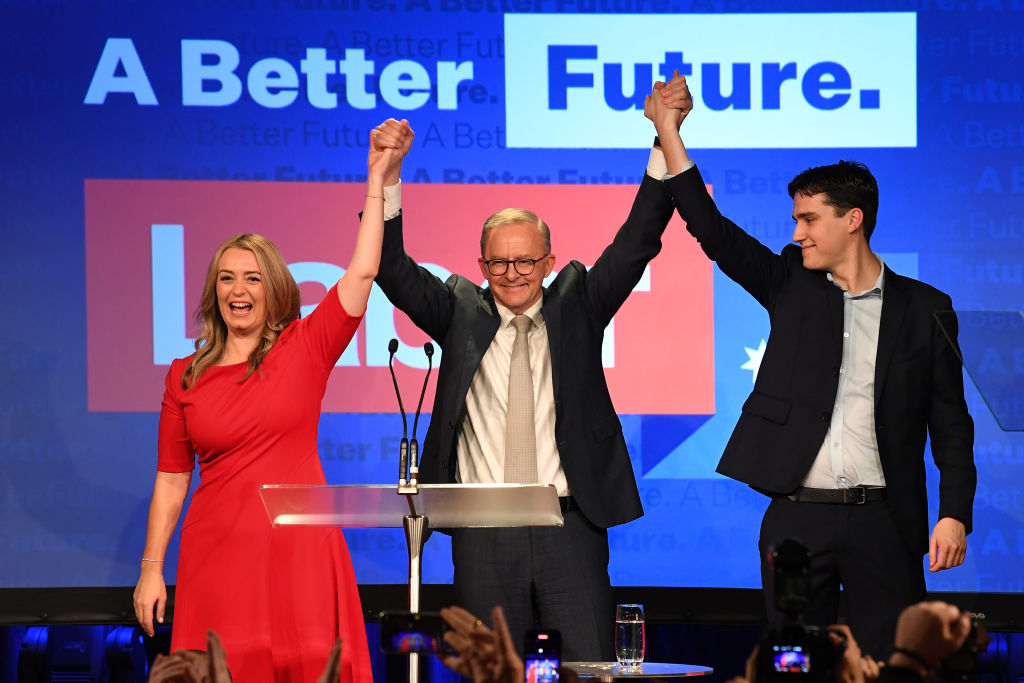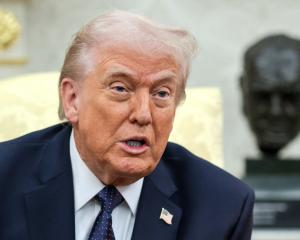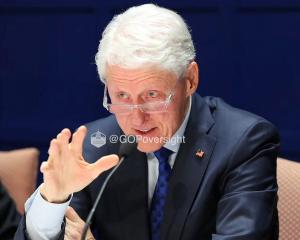Australia's Labor Party has ended almost a decade of conservative rule as the government was swept away in an election by a wave of support for candidates who campaigned for more action on climate change and may hold the balance of power.
Labor leader Anthony Albanese will be sworn in tomorrow as the new Prime Minister after incumbent Scott Morrison conceded defeat on Saturday night.
Partial results showed that while Labor had made small gains, Morrison's Liberal-National coalition had been punished by voters in Western Australia and affluent urban seats in particular.
Centre-left Labor is 4 to 5 seats short of a majority of 76 in the 151 seat lower chamber with about a dozen electorates deemed too close to call, television channels reported on Sunday, as Labor looks to return to power for the first time since 2013.
Albanese will become the 31st prime minister after independents, who campaigned for more action on climate change, toppled Morrison's Liberal Party in several of its traditional strongholds.
The Greens and a group of so-called "teal independents", who campaigned on policies of gender equality and tackling climate change, put on a strong showing, tapping voter anger over inaction on the environment after some of the worst floods and fires to hit Australia.
"Tonight, I have spoken to the leader of the opposition and the incoming prime minister, Anthony Albanese. And I've congratulated him on his election victory this evening," Morrison said.
Albanese, speaking as he headed to his party celebrations, said he wanted to unite the country and "end the climate wars".
"I think people want to come together, look for our common interest, look towards that sense of common purpose. I think people have had enough of division, what they want is to come together as a nation and I intend to lead that."
Albanese said he aimed to be sworn in swiftly so he could attend a meeting of the Quad security grouping in Tokyo on Tuesday. He promised constitutional recognition and parliamentary representation for Indigenous Aboriginals, as well as the establishment of an anti-corruption commission.

TURNING TEAL
The centre-left Labor had held a decent lead in opinion polls before the election, although surveys showed the Liberal-National government narrowing the gap in the final stretch of a six-week campaign.
In one of the biggest hits to the government, Treasurer Josh Frydenberg said it would be "difficult" for him to hold the long-held Liberal seat of Kooyong in Melbourne against an independent newcomer.
Three volunteers working for teal independent Monique Ryan, who was challenging Frydenberg, said they joined Ryan's campaign because they were concerned about the climate for the sake of their children and grandchildren.
"For me, it's like this election actually feels hopeful," Charlotte Forwood, with three adult children, told Reuters.

Outgoing Defence Minister Peter Dutton - a former policeman from Queensland - was shaping up as favourite to lead the party.
Early returns suggested the Greens had made ground, looking to pick up to three seats in Queensland.
Greens leader Adam Bandt, who retained his inner city Melbourne seat, said climate was a major issue for voters.
"There was an attempt from Labor and Liberal to bury it, and we were very clear about the need to tackle climate by tackling coal and gas."
Morrison and Albanese earlier cast their votes in Sydney after making whistle-stop tours across marginal seats in the final two days of a campaign dominated by rising living costs, climate change and integrity.
As Labor focused on spiking inflation and sluggish wage growth, Morrison, a strong supporter of Australia's coal industry, made the country's lowest unemployment in almost half a century the centrepiece of his campaign's final hours.
Britain's Prime Minister Boris Johnson offered Albanese his congratulations.
"Our countries have a long history and a bright future together. As thriving, like-minded democracies we work every day to make the world a better, safer, greener and more prosperous place."













